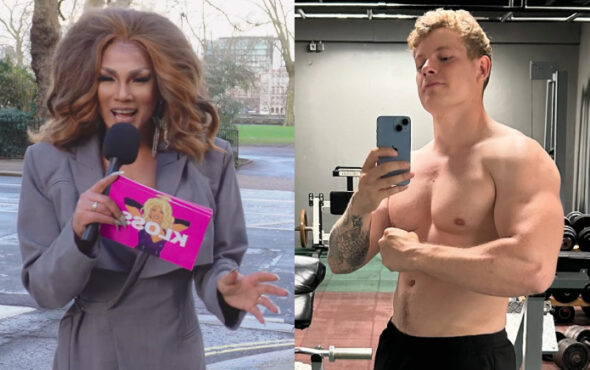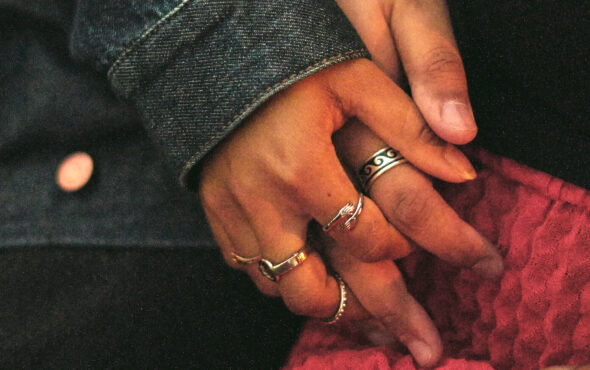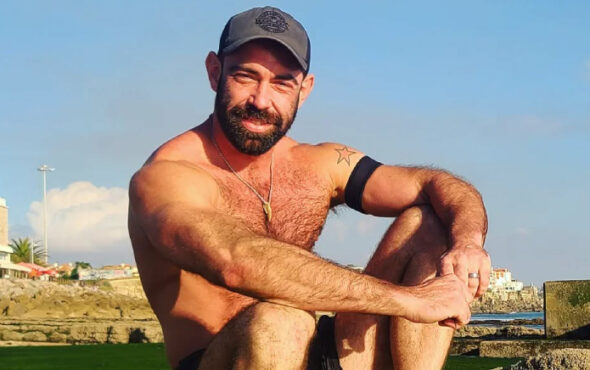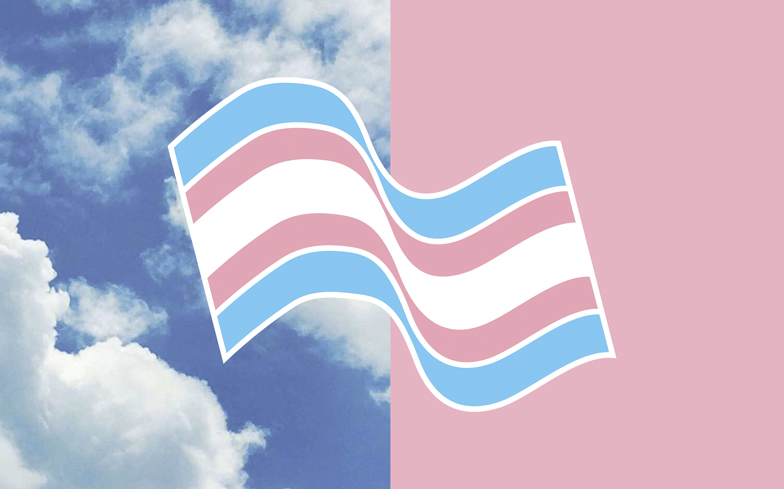
For New Years I went for a hilariously boujie spa hotel stay in Cambridge. It was sensational to be honest. One of those places that just has free cookies in glass cloches in the hallways so you can just go outside and gorge in the hallway. It felt like a turning point for me in many ways. I’d made it through 2019, one of the hardest yet most gratifying years of my personal, and professional life. I felt like I’d cemented a path for myself, and felt content in the work and life that I was creating. Little did we all know that three months later we would be told, by law, that we weren’t able to have sex.
Lockdown and it’s many iterations have supplied us all with a multitude of feelings. Those first few weeks and months where 99% of the gay population started baking banana bread, sourdough and cinnamon buns, in turn transforming into twink versions of Paul Hollywood, whilst also dabbling in a casual paint by numbers and getting too engrossed in trying to make the perfect iced coffee from home.
At the beginning, for me, I was unsure how to feel. As a freelancer, and someone that technically should work from home, I’d never been able to feel content with staying in. There was a part of me that always felt that if I stayed inside all day, I was giving in to the transphobes on the streets that were constantly sharing their unsolicited opinions of me. That I shouldn’t be forced to stay inside my own house, whilst simultaneously linking this notion of ‘being outside’ to ‘productivity’. But there was a turning point in the first week that felt like a calm sense of relief.
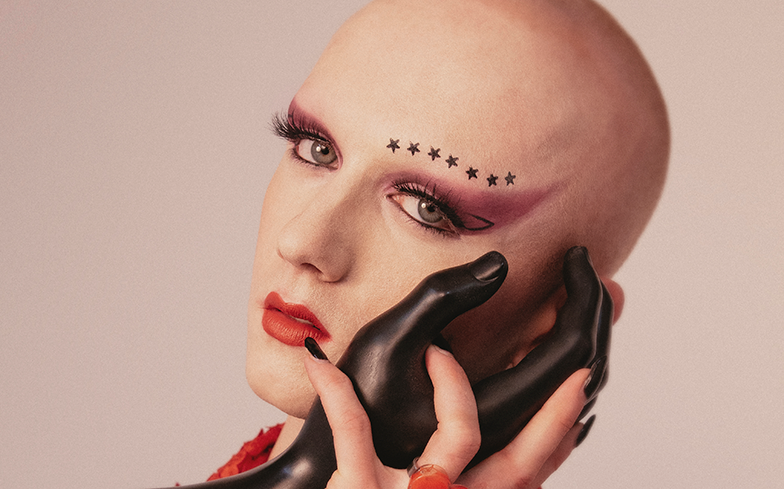
As trans folk, the outside world is not a nice place to be. It’s odd to say that, and think that out loud when, what you’re essentially saying is, the world isn’t a nice place to be. The mundanities of life become mountains to climb, and simply getting from A to B can become the hardest part of your day. But what lockdown surprisingly afforded me, and many other trans people, was a moment of stillness from an environment that often doesn’t allow us to be stationary. A temporary release and pause from constant street harassment and public prejudice. Time within ourselves, that wasn’t always easy, but allowed some of us to analyse, think, and be within our own minds. For me, it centred my ability to think about my identity in a way that wasn’t always precursored with anxiety or terror. But for many, this wasn’t the case. LGBTQ+ people have been disproportionately impacted by the Covid-19 outbreak in a number of different ways. LGBTQ+ helplines have seen a surge in activity and outreach, despite their services being harder to manage due to social distancing. Domestic abuse and unsafe home environments have also meant that charities such as AKT have seen a rise in demand for their services. This is specifically young LGBTQ+ people not feeling able to be themselves, especially if they’ve been forced to return home during the pandemic.
Governments both in the US and the UK, as well as countries in Europe such as Hungary and Poland have also used the monopoly that corona has had on the news, to pass laws and discuss legislation that will indefinitely impact and harm LGBTQ+ lives – especially those of the trans experience. In the UK, after a leak by The Sunday Times, we became privy to the proposed plans for the Gender Recognition Act. Despite an overwhelmingly positive response from 70% of the respondents, the plans headed by Tory snake Liz Truss revealed a large-scale rollback for trans people. Body autonomy and ‘single sex spaces’ were weaponised, with trans folk the scapegoat. It would result in a potential ‘Bathroom Bill’ similar to that of North Carolina being introduced, and incuded harmful rhetoric throughout directed specifically at trans and gender non-conforming folk.
The ways in which the UK Government pick and choose to listen to the public conscience is clearly biased, and follows their own idealistic agenda to not listen to the accessibility needs of marginalised folks. It’s bizarrely not as simple as following the majority. Take Brexit for example, a decision that resulted in a 48%/52% split, but didn’t warrant a real compromise and instead went on with a hard plan moving Britain out of the EU. But in contrast, the results of the GRA consultation saw nearly three quarters of respondents giving positive feedback for a streamlining of the GRA process, yet that doesn’t seem to fit with the transphobic ideals that the Tory government seem to be pedalling. You’d presume that an overwhelming positive response would mean a decisive action in support of the positive vote? It poses the question, why are they using the minority of responses to paint a picture that this was the general consensus, and was this their plan all along? Are they simply using the 30% to justify what they’ve clearly had a yearning to do anyway?
Our government planning to segregate us from using women’s public spaces will show that they are openly transphobic, and will encourage violence towards us from the British public.
We also can’t ignore or look over the fact that Black trans lives are being discussed right now with a lens of revolution and urgency. Black trans lives, and Black queer folk have always been on the intersections, but with the death of George Floyd in Minneapolis and the subsequent conversations and action that has happened as a result, it’s of the utmost importance that Black LGBTQ+ people have the resources and accessibility they need right now. There are benefits to this heightened awareness, and although the duality of visibility means that these conversations and actions have the power to instill social change, it also means that these groups are now even more vulnerable than they already were.
So what does this all mean for trans folk when we leave lockdown? With many of us having different experiences during our time inside, what will our future life outside of the confines of our homes look like? With LGBTQ+ charities and support services in dire need of funding, and trans visibility at an all time high, how will navigating our ‘new normal’ look?
Shay, a non-binary speaker and curator shared their feelings about re-emerging back into the world post lockdown. “Lockdown has been especially hard for those who are minorities within minorities,”they shared with me via email. “In the midst of all the extra attention and the reignition of Black Lives Matter happening, there have been frequent larger attacks on the community – especially those who have intersecting identities like me. For example, being both Black and Trans I’ve definitely felt more concerned and worried with how people will perceive me during and after lockdown, and how I might have to act differently.”
Many trans people, as Shay has detailed here, are worried about the future for trans folk. But this, combined with the idea that we don’t exactly know what the future will look like, is a puzzle that everybody is struggling to piece together. It’s a feeling of heightened awareness and anxiety, but visually not being able to know what the world that we will be roaming will have in store for us.
In regards to the GRA, and the ramifications of the possible rollbacks, Shay explained their thoughts on the already tough realities of what that process is like. “It’s scary though, if the GRA reform does get scrapped and these tighter restrictions are brought in, it would have such devastating consequences for the trans community,” they said. “I already don’t feel comfortable in a lot of public gendered spaces as a non-binary person and I’m scared for the negative impact this could have for the trans community and particularly for trans youth.”
The frustrating reality of being trans in the UK right now is that fictional authors and questionable comedy writers are given more legitimacy and authority with their words and experiences on trans issues, than actual trans people. This idea that JK “You-Know-Who” has become the monolith of trans rights, and trans experiences is a tactic that is often deployed by the media to whip up further hostility. A white, rich, cis, straight woman with a devoted following across the globe is always more likely to be listened to than a Black trans woman who actually has to deal with the ramifications of the slanderous, violent words that these ‘celebrities’ speak.
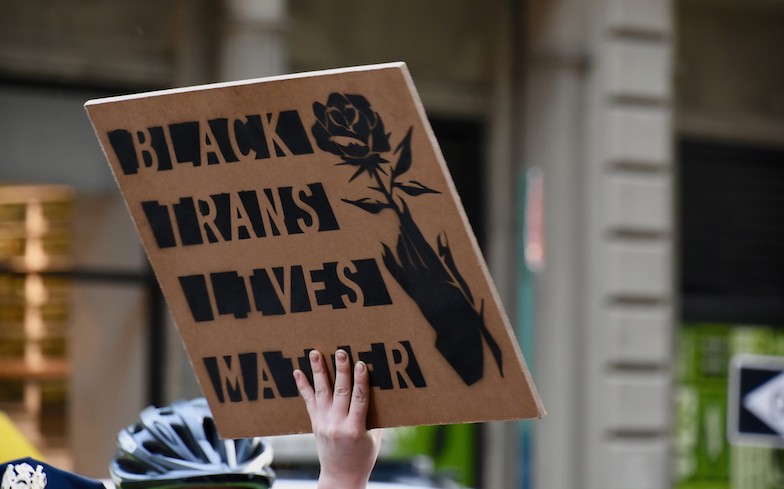
Lucia Blayke, Founder of Transmissions and London’s first Trans Pride back in November shared with me her thoughts about the future of trans rights in the UK, and what life might look like for trans folk moving forward. “Honestly, it’s not going to be a quality of life that I’d wish on anyone,” she said. “Our government planning to segregate us from using women’s public spaces will show that they are openly transphobic, and will encourage violence towards us from the British public. I am honestly scared and exhausted, we really need our cis allies to speak up for us.”
Blayke discussed the ways in which lockdown also hasn’t been as easy as some have made it appear online. Lockdown itself posed separate challenges for trans people. “I didn’t have nightlife, my career, my friends to distract me from my gender dysphoria anymore,” she added. “It was incredibly traumatic but now I’m taking the time to focus on my transition instead of pretending everything is fine. I think lockdown has helped a lot of people reflect on their inner demons and forced them to deal with them.”
Miss Rona has definitely been an experience for us all. Despite the fact that many of us are still living within the rules of lockdown, and aren’t returning to the shops or our offices just yet, our lives have inexplicably been changed over the past four months. The timing cannot be ignored. The fact that during our stay-cations we have all been witness, and an active part of, a social revolution and mobility that is actively calling for a deconstruction, and re-building of many of our white-spremacist built institutions, means that our world we are re-entering has again been shifted on its axis.
I hope for a continuation of this often sickly sweet kindness that we saw for our key workers and NHS staff during the pandemic. Although performative, and often not moving into any form of action, it sparks a conversation around who as a society we deem worthy of compassion and support. I want us to be able to continue this wave of giving, and community spirit, but to those that need it more than ever. To the black trans folk who are continually suffering. And to those who are at the beginning of their gender identity journey and find themselves at a crossroads as to whether they should begin the legal and physical process because of what potentially lies ahead at the hands of the Tory Government.
Lockdown was never easy, and we will continue to see the impacts of the pandemic across society for decades to come, but let’s not allow it to mask and hide the real societal change that we are on the precipice of. We all need to continue to fight harder, and stand more united, against changes to our world that will have a deeper legacy than this pandemic.

